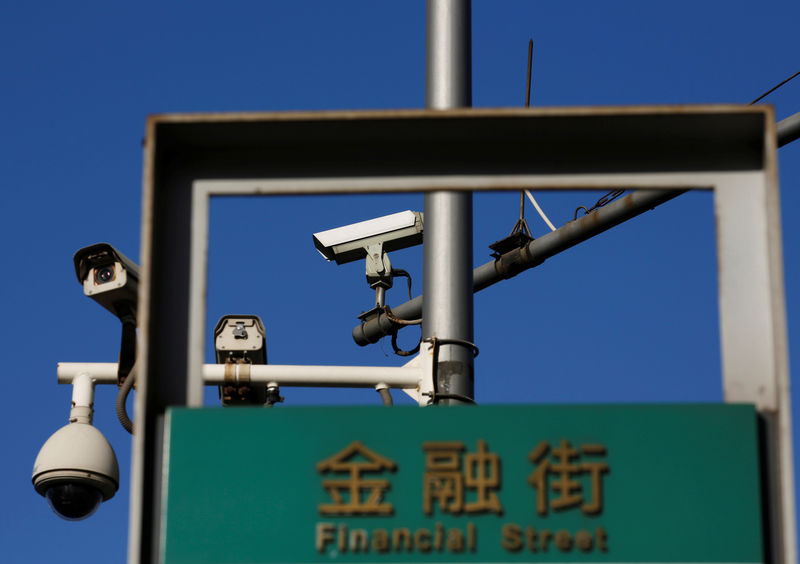By Sumeet Chatterjee and Cheng Leng
HONG KONG/BEIJING (Reuters) - China is set to see consolidation among its smaller banks after a rare government seizure of a troubled Inner Mongolia lender in May, as Beijing looks to avert any systemic risk amid a slowing economy and an escalating trade war with the United States.
Mergers of weaker small banks with stronger peers is seen by analysts as the best option for a sector reeling from rising bad loans and funding costs, and which Beijing is wary of due to the likely knock-on effects should some lenders start to fail.
Although the central bank said on Sunday it was not planning any more seizures for the moment after taking over Baoshang Bank on May 24, citing serious credit risks, analysts see the move as a precursor to sector consolidation.
"This is China's mini-Lehman moment," said Natixis' chief economist Alicia Garcia Herrero. "The regulators would start looking at consolidation as a real option ... this is just a trigger for that," she said referring to Baoshang's takeover.
The People's Bank of China (PBOC), the central bank, and the China Banking and Insurance Regulatory Commission (CBIRC) did not respond to Reuters request for comment.
China's move to head off any instability among its 4,000-plus banks comes as Beijing faces pressure to boost bank lending to help cushion the economic impact from the higher tariffs on Chinese imports imposed by the United States.
While the country's Big Five banks, including the likes of Industrial and Commercial Bank of China and Bank of China, dominate the sector, smaller banks still account for a quarter of assets, according to regulatory data, and have complex ties to the broader financial system.
Total assets of mid- and small-sized banks reached 68.6 trillion yuan by end-2018, accounting for 26% of the total market share of financial institutions, up from 18% in 2008, according to Chinese brokerage CICC.
Although small banks are not by themselves seen as a systemic risk, the concern is that enough of them have largely funded themselves via short-term money market borrowing, posing a collective danger if one or two fail.
Many smaller banks have also invested heavily in shadow banking products. Often classified as receivables on balance sheets, these tend to actually involve loans and grew at a much faster pace than other assets and deposits. (for an interactive graphic on China bank bad loans, click:https://tmsnrt.rs/2WT8M8m)
Moreover, at least 18 smaller institutions haven't published up-to-date financial reports, and in some of those cases senior regulatory officials have been appointed for bank management oversight.
Last week one lender, Bank of Jinzhou, said its auditor EY had quit before signing off on its 2018 accounts, after being unable to agree with the bank on how it could check out loans where the actual usage did not match the purpose stated in the original documents.
"With the amount of loan defaults surging, one or two (client) defaults will be big enough to drag some of the medium and small-sized banks, usually the main creditors, into a similar situation to Baoshang," said a Shanghai-based lawyer.
WHO NEXT?
The problem for investors is identifying which of the weaker banks could be next to go, as well as how any seizure or forced consolidation might happen.
In Baoshang's case, state-backed Big Five member China Construction Bank (CCB) has been tasked with taking over the operations for a year.
But there were still some expectations about CCB being asked to consolidate Baoshang, JPMorgan (NYSE:JPM) said in a research note.
UBS analyst Jason Bedford said consolidation would accelerate but it would mainly be restricted to intra-province because of the bureaucratic hurdles involved in crossing provincial borders.
"There are other banks in trouble, and some banks are just in trouble not because they built up a large shadow loan book, but because they are in a difficult regional economy," he said.
Harry Hu, senior director at S&P Global (NYSE:SPGI) Ratings, said smaller banks with more concentrated exposures to sectors affected by the trade tensions would be under pressure to consolidate.

"In our view, consolidations within the banking sector will continue ... and financial stability as well as commercial interests are both important considerations to the authorities."